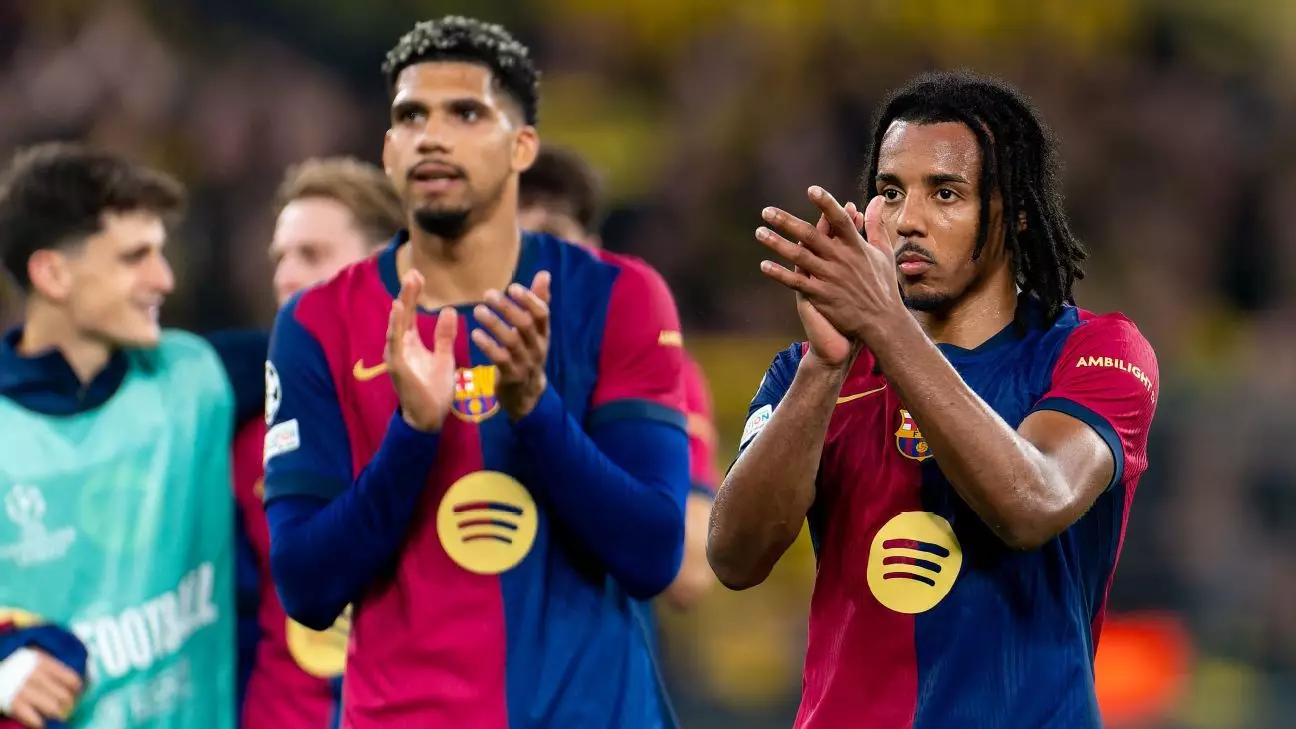In the rollercoaster of elite football, even the most pronounced victories must sometimes give way to less favorable outcomes. After Barcelona’s 3-1 loss to Borussia Dortmund in the UEFA Champions League quarterfinal, it’s easy to overlook the silver lining amidst the disappointment. Coach Hansi Flick had to remind his players of the bigger picture: they had advanced to the semifinals for the first time since 2019, despite the setback. The European football community often romanticizes resilience, yet Barcelona’s approach underscores the necessity of maintaining perspective, particularly when faced with adversity.
Flick’s message—that unexpected defeats can coexist with overall success—is vital for players who are accustomed to winning. The emotional toll of falling short on the pitch can cloud one’s ability to see the broader implications. As sports psychologists often say, maintaining a growth mindset becomes critical. In a world where glory is fleeting and expectations are sky-high, the reminder to celebrate the path traveled, rather than just fixating on the bumps along the road, is essential.
Exceeding Expectations Amidst the Noise
Imagine the atmosphere at Signal Iduna Park, an arena renowned for its passionate support. Dortmund entered the match fueled by their fans, who transformed the stadium into a cauldron of noise. Given that context, it’s remarkable that Barcelona handled the pressure well enough to emerge victorious on aggregate, 5-3. The Catalan side was coming off a 4-0 triumph in the first leg, a stunning testament to their overall form during the season. Flick emphasized the critical nature of the aggregate score, reminding both his players and the media that success can often be judged by more than just a single match.
In defeat, players like Jules Koundé displayed admirable self-reflection. He expressed disappointment in conceding their previous form—pressing effectively and closing down passing lanes. This self-awareness is a precursor to improvement, demonstrating a commitment to not just scoreboard outcomes but to quality of performance across multiple matches and competitions. Such perspective checks are crucial in a sport rife with weekly challenges and pressures.
Finding Balance in Performance
The juxtaposition between Barcelona’s regular-season performance and their woes in Dortmund spotlights a greater challenge faced by football teams: maintaining consistency. Flick’s rotation strategy, deliberately resting key players like Pedri and Iñigo Martínez, can be seen as a double-edged sword. While this strategy aims to keep players fresh for upcoming fixtures, it occasionally leads to disjointed performances, which was evident in the second match.
In the world of elite sports, it’s a fine line to walk. Teams must balance their roster depth against maximizing players’ rhythm and performance continuity. Flick’s satisfaction with his players’ overall season—a difficult feat, given their competition on multiple fronts—demonstrates a leader’s philosophy to appreciate both the journey and end results. However, the reality remains that caution must be taken; lessons learned from poor performances must be quickly assimilated into preparation for future matches.
The Road Ahead
With the immediate focus shifted back to La Liga, where Barcelona holds a four-point lead, the team has the opportunity to quickly put the Dortmund setback behind them. Upcoming matches against Celta Vigo and Mallorca will serve as litmus tests for their character and preparedness. How they respond in these domestic clashes will define not just their title aspirations, but also their mindset heading into more significant encounters, particularly the Copa del Rey final against Real Madrid.
Winning the league and achieving success in the Copa del Rey will be paramount not just for trophies, but for the psyche of a squad that has seen its fair share of highs and lows. As they strive to maintain their momentum, Barcelona must focus collectively on resolving individual and systemic weaknesses that have occasionally led to lapses in performance.
This phase of Barcelona’s journey is about more than just statistics; it’s about the heart of the team, their commitment to learn from setbacks, and their unwavering desire to pursue greatness amid challenges. For teams with aspirations to dominate in Europe, the blend of resilience, introspection, and performance evolution will ultimately dictate their legacy.

